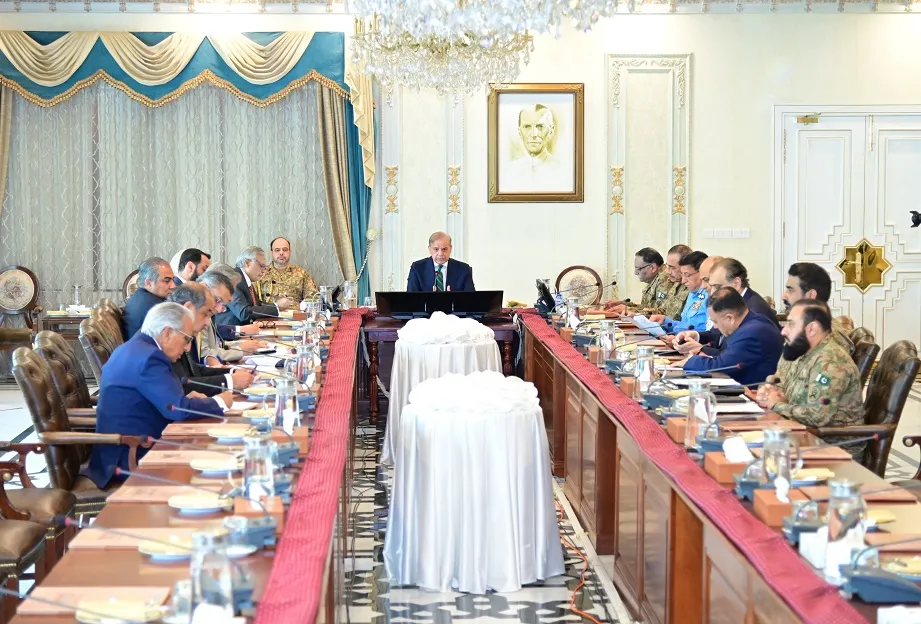Islamabad: India’s stance on recent Kashmir attack was unilateral, unjust, politically motivated, extremely irresponsible and devoid of legal merit, and Indian held Kashmir is an disputed territory as agreed by India in UN.
This was discussed in a high level meeting in Pakistan in response to Indian stance.
Prime Minister Muhammad Shehbaz Sharif chaired a crucial meeting of the National Security Committee (NSC) today to discuss the evolving national security environment and the regional situation, especially following the tragic attack on tourists in Pahalgam, Anantnag District of Indian Illegally Occupied Jammu and Kashmir (IIOJK) on April 22, 2025.
The Committee expressed deep concern over the loss of lives in this incident and condemned the measures announced by India on April 23, 2025, labeling them as unilateral, unjust, politically motivated, and devoid of legal merit.
Key Observations by the National Security Committee:
Kashmir Dispute:
The Committee reiterated that Kashmir remains an unresolved dispute between Pakistan and India, as recognized by numerous UN resolutions.
Pakistan continues to support the Kashmiri people’s right to self-determination.
The Indian state’s persistent oppression, abrogation of IIOJK’s autonomy, and political and demographic manipulation have led to a consistent backlash, perpetuating cycles of violence.
India’s systemic persecution of minorities, particularly Muslims, is escalating, exemplified by the forced passage of the Waqf Bill to marginalize Muslims in India.
Terrorism and Volatility:
Pakistan strongly condemns all forms of terrorism.
Having borne the brunt of terrorism for decades, Pakistan’s counter-terrorism efforts are targeted by Indian attempts to instigate volatility along Pakistan’s Eastern borders.
The attempts to link the Pahalgam attack with Pakistan are deemed frivolous, as no credible evidence has been presented.
India’s Role in Fomenting Terrorism:
Pakistan holds irrefutable evidence of India’s state-sponsored terrorism, including the confessions of Indian Navy officer, Commander Kulbhushan Jadhav.
This case stands as a stark reminder of India’s involvement in orchestrating terrorism against Pakistan.
International Concerns:
The Committee also deplored the implicit threat in India’s statement of April 23, 2025, warning the international community of India’s pattern of extraterritorial assassinations.
These acts, in blatant violation of international law, have been exposed with undeniable evidence.
Pakistan vowed to ensure justice for these violations and take firm reciprocal measures to safeguard its sovereignty.
Decisions Taken by the National Security Committee:
Indus Waters Treaty:
Pakistan categorically rejects India’s decision to hold the Indus Waters Treaty in abeyance.
Read More: Pahalgam Attack: India Summons Top Pakistani Diplomat as National Security Committee Convenes
The Treaty is an internationally binding agreement, and any unilateral attempts by India to suspend or divert the flow of water would be regarded as an “Act of War,” to which Pakistan will respond with full force.
Suspension of Bilateral Agreements:
In light of India’s actions, Pakistan has decided to hold all bilateral agreements, including the Simla Agreement, in abeyance until India halts its terrorism activities, extraterritorial killings, and non-compliance with international law and UN Resolutions on Kashmir.
Border and Visa Measures:
Pakistan will immediately close the Wagah Border Post and suspend all cross-border transit through this route.
Visas issued under the SAARC Visa Exemption Scheme (SVES) to Indian nationals will be canceled immediately, with exceptions made only for Sikh religious pilgrims.
Indian nationals in Pakistan under SVES are instructed to leave within 48 hours, except for Sikh pilgrims.
Diplomatic and Consular Actions:
Pakistan has declared Indian Defence, Naval, and Air Advisors in Islamabad as persona non grata and has ordered their departure by April 30, 2025.
The number of Indian diplomats and staff members at the Indian High Commission in Islamabad will be reduced to 30 by the same date.
Airspace Closure and Trade Suspension:
Pakistan has closed its airspace for all Indian-owned or operated airlines.
Furthermore, all trade with India, including trade to and from any third country via Pakistan, is suspended with immediate effect.
The National Security Committee underscored that Pakistan, backed by its capable Armed Forces, remains fully prepared to defend its sovereignty and territorial integrity against any misadventure.
The Committee’s measured response to India’s actions in February 2019 serves as a testament to Pakistan’s resolve.
Also Read: India Suspends Indus Waters Treaty, Seals Attari Border in Strong Message to Pakistan
Pakistan’s strong response to India’s belligerent measures validates the Two-Nation Theory, as envisioned by Quaid-e-Azam Muhammad Ali Jinnah in the 1940 Pakistan Resolution, which continues to resonate with the Pakistani nation’s sentiments today.
Pakistan remains committed to peace but will never allow any force to infringe upon its sovereignty, security, dignity, and the inalienable rights of its people.
